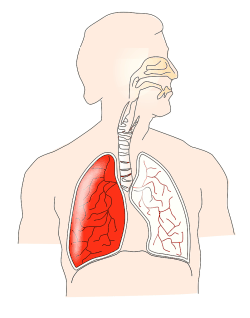Just how is migraine related to allergies – specifically, allergic rhinitis? There’s a growing amount of science out there to answer the question, but many people still don’t understand the connection, and therefore they have trouble finding good treatments.
First, a quick definition. There are a lot of different terms that are thrown around – hay fever, seasonal allergies, rhinitis, mixed rhinitis… In this post we’re going to talk about allergic rhinitis and mixed rhinitis.
Allergic rhinitis involves some very familiar symptoms generally centred around the nose. Think itchiness, runny nose, and watery eyes, for example. The symptoms are typically triggered when you’re exposed to something that your body sees as a threat – pollens, cigarette smoke, cats, or perfumes.
Allergic rhinitis refers more to things like pollens, animals, and molds. Mixed rhinitis can include these things, but also weather changes, gasoline, perfumes, cigarette smoke, and so on.
The Migraine and Rhinitis Connection
Research into the 2008 American Migraine Prevalence and Prevention (AMPP) Study, reported on last month, confirmed that people with rhinitis (allergic and mixed) had more frequent migraine attacks – and more disabling attacks. The connection with mixed rhinitis was the strongest.
This is no surprise, really. Way back in 2006 we talked about the fact that people with hay fever seemed far more likely to have migraine.
But the researchers are cautious with these results. Vincent Martin, MD, lead author of the study, says this:
We are not sure whether the rhinitis causes the increased frequency of headaches or whether the migraine attacks themselves produce symptoms of rhinitis in these patients. What we can say is if you have these symptoms, you are more likely to have more frequent and disabling headaches.
The authors are right to be cautious. The questionnaire that the study is based on had a low response rate, and there are serious limitations to questionnaires like this in the first place.
Although it’s hard to know exactly how much allergies impact migraine and vice versa, thanks to this and many other studies we can make some pretty good guesses about how migraine is connected to rhinitis.
Could rhinitis make you more susceptible to migraine attacks? Absolutely. Any changes in the body could cause problems for someone with migraine. But some studies suggest that the raised histamines in someone with an allergy could contribute. (Don’t miss the two-parter – Migraine and Histamine: Part 1 and Migraine and Histamine: Part 2)
Could migraine attacks make you more susceptible to rhinitis? Well, there’s no doubt that migraine attacks can cause rhinitis symptoms. Runny nose, congestion, watery eyes – these are common migraine symptoms. In fact, you could be confusing rhinitis with migraine. You might not be allergic at all.
Could something be causing both migraine and rhinitis? For sure. This is especially true when it comes to mixed rhinitis. Changes in weather, lightning, perfumes – these are all things that could very well trigger rhinitis as well as migraine.
What to do about it
Your first response should not be to run out and take anti-histamines, or and antibiotic (please no!). You need to do a bit of research on this one, but the rewards are great.
If you suffer from a lot of rhinitis symptoms, and migraine attacks, here’s what you need to do:
- Keep a detailed headache diary. Include rhinitis symptoms as well as actual headache.
- Now that you have more information, take it to your doctor and discuss it with her.
- Avoid allergens. This is always your first priority, especially if you see a clear connection (but even if you don’t). An excellent source of ideas for the migraineur is What Your Doctor May Not Tell You About: Migraines. It’s an older book, but when it comes to quick tips about things like this, it’s still worth having a copy. Check out chapter 7 – Eliminating Environmental and Other Triggers
- Consider starting with migraine treatment. In many cases, your main problem is going to be migraine, not rhinitis. Treating the migraine may solve both problems. This is especially the case if you have a less-clear case of rhinitis, but you certainly have migraine. You may need to find a migraine specialist.
- Cautiously treat rhinitis. Treatment of rhinitis may help with migraine as well. If you clearly have rhinitis, especially allergic rhinitis, you’ll want to take it a little more seriously. A specialist may be useful here as well. Do not just rush out and get an antihistamine – treatment will depend on you and your medical history and symptoms.
Doctors are slowly starting to take this connection seriously. However, if you’ve read through this post, you may still be ahead of most doctors. Keeping track of your symptoms and doing your own research will help your doctor get you better treatment faster.
To read more (in addition to the links above):
 For example, we know that people with migraine are at a higher risk to have asthma as well. A child of a mother with migraine is more likely to develop asthma.
For example, we know that people with migraine are at a higher risk to have asthma as well. A child of a mother with migraine is more likely to develop asthma.

